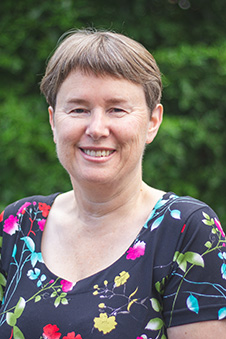Thursday 9 January 2020 11:14am
Thousands of New Zealanders could be missing out on prescriptions they desperately need because they can’t afford them, an Otago researcher fears.

Professor Pauline Norris.
Professor Pauline Norris, from the University of Otago Centre for Pacific Health, is urging people to sign up for a new study she hopes will help overhaul New Zealand’s prescription payment system.
Previous Otago research shows missing out on vital prescriptions can harm people’s health, with sole parents, Māori and Pacific and those who are more materially deprived among the worst affected.
Although New Zealand prescription charges for subsidised medicines are low at NZD$5 for each prescription, many people with serious illnesses cannot afford the fees, for which there are no income-based exemptions, Professor Norris explains.
The majority of New Zealanders are also not aware they are eligible for a Prescription Subsidy Card if they pay for more than 20 prescriptions per year, she says.
“We did research which found 62 per cent of people did not know that they only had to pay for twenty items a year.”
She is seeking participants for the Free Meds Study that could see participants receive free prescriptions for a year, or a NZD$100 grocery voucher at the end of the study.
People with diabetes, taking antipsychotic medications, or suffering from COPD/emphysema are eligible to enrol.
Half of the participants will receive free prescriptions for a year, and the other half will receive a NZD$100 grocery voucher at the end of the study.
About 1,500 participants from particular regions in the North and South Islands are needed to sign up before 31 January 2020 for the study to go ahead.
The study start date coincides with the annual start of the prescription subsidy scheme, which resets charges on 1 February each year.
“February 1st is a tough time of the year for many people, just after Christmas and with extra costs for kids going back to school, so it is a bad time of the year to make people start paying again,” Professor Norris says.
“The biggest problem with the current system is that if people can’t afford the first 20 items they never get to the limit and start receiving free prescriptions.”
Hastings pharmacist Sam Perez agrees.
“Every year many people forget that they have to start paying for prescriptions, which can be very stressful if they are struggling financially, as some of these first prescriptions can be very costly,” he says.
“At this time of year it is very common for people to try and select which medicines are most important, as they can’t afford them all.”
Otago researchers hope the Free Meds Study will provide immediate benefit to people by helping them pay for their medicines, but also a long-term benefit in providing evidence about the impact of prescription charges.
“If we find that getting free prescriptions means people are less likely to end up in hospital and have better health, we will lobby government and other organisations to change the system,” Professor Norris says.
Study participants are needed from Oamaru, Timaru, most of Horowhenua (all of Levin, Foxton, Otaki), Wairoa, Hastings, Napier, Gisborne and rural Tairāwhiti, Opotiki, Te Kaha, and Whakatane.
The free phone number to find out if you are eligible to enrol in the study is 0800 531 400.
For further information, please contact:
Professor Pauline Norris
Health Services Research
Centre for Pacific Health, Va’a o Tautai
Health Sciences
University of Otago
Tel +64 3 479 8493
Email pauline.norris@otago.ac.nz
